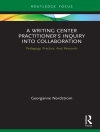This book explores the impact of the spread of English on language teaching and learning. It provides a framework for change in English language teaching to better reflect global realities and current research. The authors examine the pedagogical implications of the global spread of English, drawing on world Englishes, English as a lingua franca, and global Englishes research. The book proposes key innovations for teaching English as an international language, and outlines key areas for future classroom-based research. The book is essential reading for postgraduate researchers, teachers and teacher trainers in TESOL and second language education programmes.
Spis treści
Tables and Figures
About the Authors
Section One: Theoretical Foundations
Chapter 1. Theorising the Teaching of English in Global Contexts
Chapter 2. Models for Teaching English as an International Language
Section Two: Global Classrooms and Curricula
Chapter 3. Language Norms in the Global TESOL Curriculum
Chapter 4. Material Evaluation and Development in Teaching English as an International Language
Chapter 5. Testing and Assessing a Global Language
Section Three: Teachers and Learners of a Global Language
Chapter 6. Learners’ Attitudes and EIL-oriented Activities
Chapter 7. Teachers of a Global Language
Chapter 8. Global Language and Identity
Section Four: Initiating Change in TESOL
Chapter 9. Initiating Change: An Invitation to Teachers and Teacher Educators
Chapter 10. Initiating Change: An Invitation to Researcher-Practitioners
O autorze
Natsuno Funada is a doctoral graduate of applied linguistics from University of Oxford, UK. Her research focuses on global Englishes and students’ attitudes. She has previously worked in English and Japanese language teaching.












